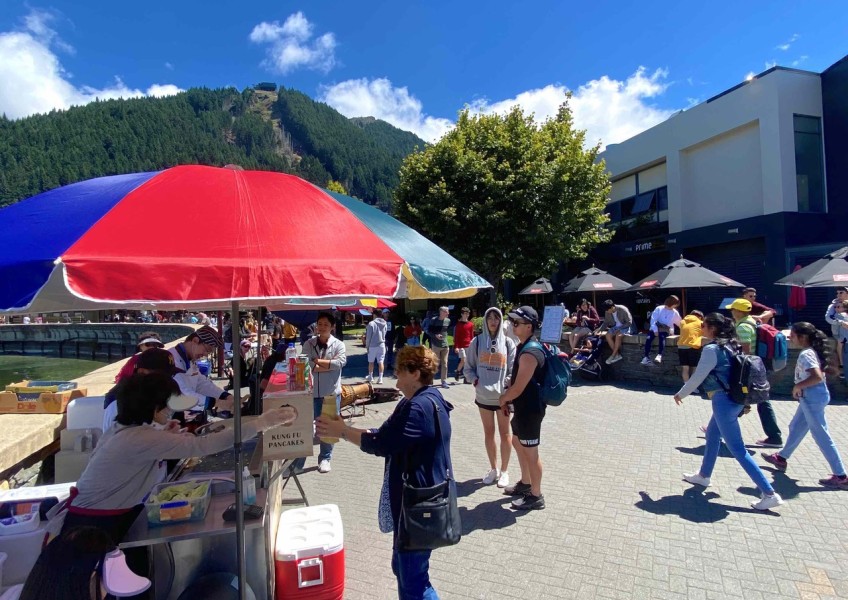
Health agencies shift crypto search to Queenstown CBD
The health agencies investigating Queenstown's cryptosporidium (crypto) outbreak have broadened their search for a source beyond the town's water supply to CBD hospitality businesses and those producing food and using water in manufacturing processes.
There are now 30 confirmed cases with another nine probable cases and seven cases under investigation. Most have been traced to the Queenstown CBD area using a heat map of the infections found to date. Most confirmed cases are between 15 and 39 years old, with one case under 10.
The boil water notice issued by the council for Queenstown and Frankton residents and businesses on a public supply remains in place.
Medical Officer of Health Dr Emma Sherwood says determining the source of any cryptosporidium infection is a complex and difficult task because it can be spread in so many different ways.
“The standard potential sources of contamination include from people who have recently travelled overseas, food or drink products, hospitality premises, recreational water, or water that’s been tainted by parasites from animals – that’s a huge pool of potential sources of infection.
“Our team is keeping an open mind and looking at each and every possibility. We are not confining the source investigation to just the local water supply,” Dr Sherwood says.
A joint agency incident management team has been working on the response since being stood up on 19 September and Health Protection Officers from Southern with support across Te Waipounamu have been interviewing positive cases to determine any links between positive cases, or potential contamination sources in common.
Te Whatu Ora Incident Controller Lynette Finnie says the team is actively working on establishing the size of the outbreak and trying to see if it is concentrated in a particular area.
“We’re leaving no stone unturned – we want to get to the bottom of this as quickly as possible. We acknowledge this is a massive inconvenience to the public, businesses and the hospitality and tourism industries.”
Although the recent flooding did briefly hamper the team’s investigations, samples can now be transported to labs without delay.
There has been one hospitalisation from complications from crypto since the outbreak began and this person has been discharged.
Public health advice:
- The most common symptom of cryptosporidium infection is smelly, watery diarrhoea and stomach cramps.
- People who live, work or have visited Queenstown and Frankton on or after August 18 and have symptoms of diarrhoea and/or stomach cramps, should call their GP or health provider to inform them and arrange testing if needed. Do not show up with a sample without having first talked with your healthcare provider.
- Weekend testing is available. Please call your GP to find out where to go.
- You can also call Healthline on 0800 611 116 for advice for managing your health.
- Most people manage self-limiting illnesses such as gastroenteritis at home and do not seek medical care or testing.
- The best thing you and your whānau can do to stop the spread of cryptosporidium (crypto) infection is to practise good hand hygiene. This means washing your hands with soap and water for at least 20 seconds and drying them thoroughly with a clean towel.
- Hand sanitiser is not effective for countering crypto.
- If you are on a boil water notice, please boil water in advance if you are able to. Plan ahead in case of power cuts. Boil water for 1 minute and store in a clean container with a lid.
- Lakes District Hospital has clean water, and a water tanker has been brought in to continue to supply clean water.
- Avoid contact with flood waters if you can and assume it is contaminated by sewage.
- If you do come into contact with flood waters, change out of any wet clothes and shoes and put them aside to wash later. Wash skin that has come into contact with flood waters and wash your hands as soon as you can.
- All items that have come into contact with flood waters should be treated with caution.
- For those cleaning up, please use protective clothing, gloves, sturdy footwear and face masks.





























